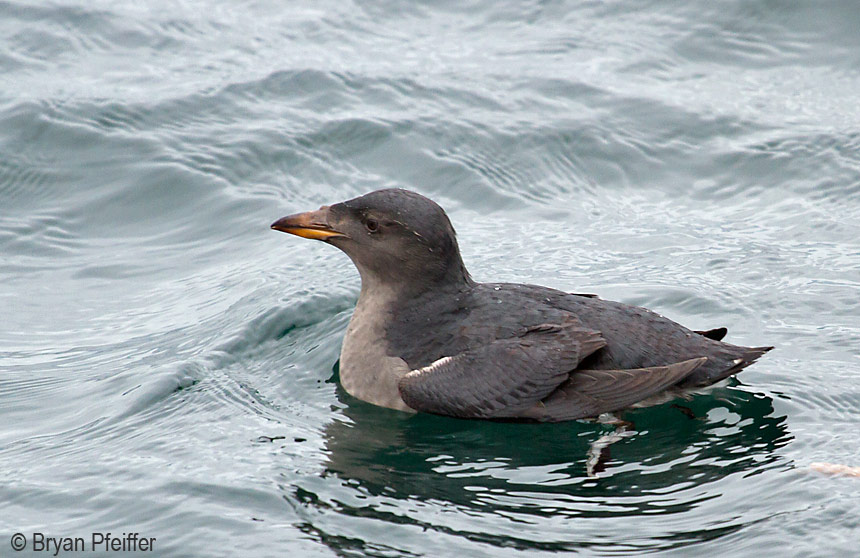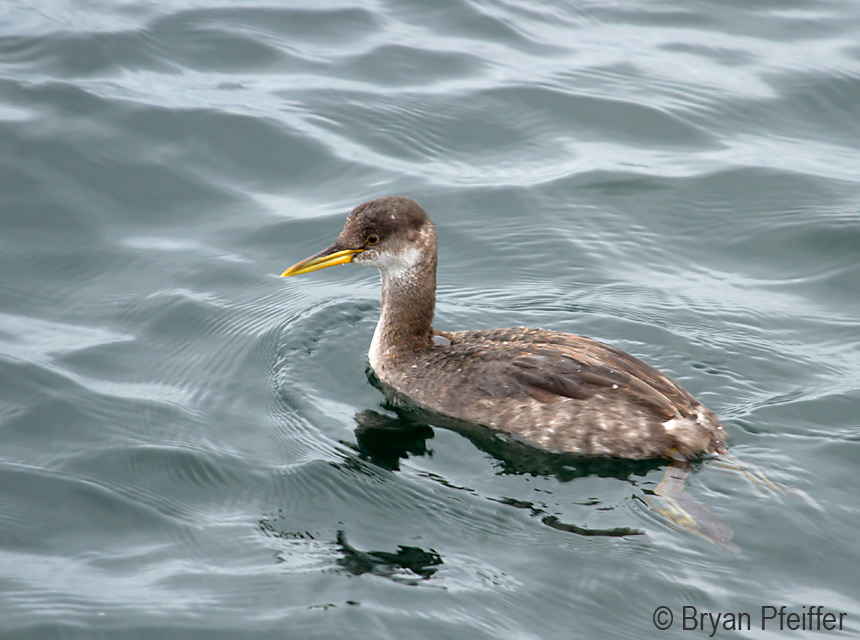What’s This? No. 15

My What’s This? challenge returns from a long vacation. Hint: It’s neither a turkey nor a football. Use the comments section below to name it and win little more than respect and $5 off any of my outings or workshops. Here’s the complete list of What’s This? challenges.
Added December 2, 2013: We have a winner!

Rhinoceros Auklet / © Bryan Pfeiffer
“Captain Eagle Eye” was first to correctly identify this as a Rhinoceros Auklet, an alcid closely related to puffins. It breeds at scattered sites along the north Pacific (mostly in Canada) and winters along the western coast of North America from British Columbia to the Baja. I photographed this one near shore in Edmonds, Washington, while birding with the legendary biologist Dennis Paulson on Saturday.
Rhinoceros Auklets are known for a pale yellow horn, about an inch long and projecting vertically from base of upper mandible above the nostril. They’ve also got some wispy white feathery crests on the head. But you don’t see those marks on immatures or winter adults. You can just barely make out a bit of the horn on this individual. Its function? Nobody knows for sure. We might suspect that it’s an armament to display a male’s genetic prowess, but females have the horn as well. So maybe they check out each other.
I’m off for more. Here’s a Red-necked Grebe:

Red-necked Grebe / © Bryan Pfeiffer

Rhinoceros Auklet